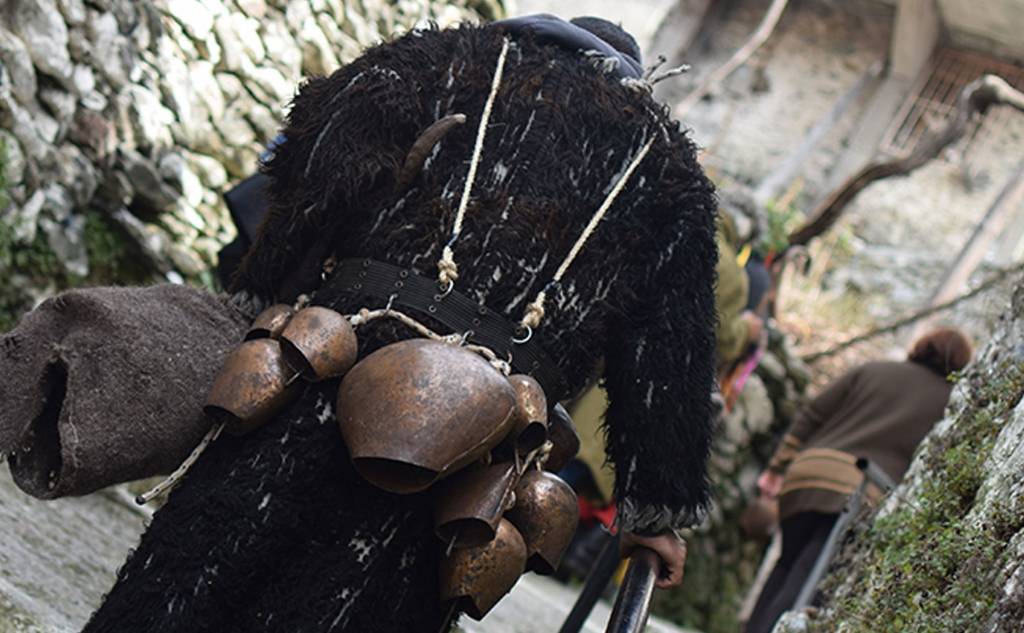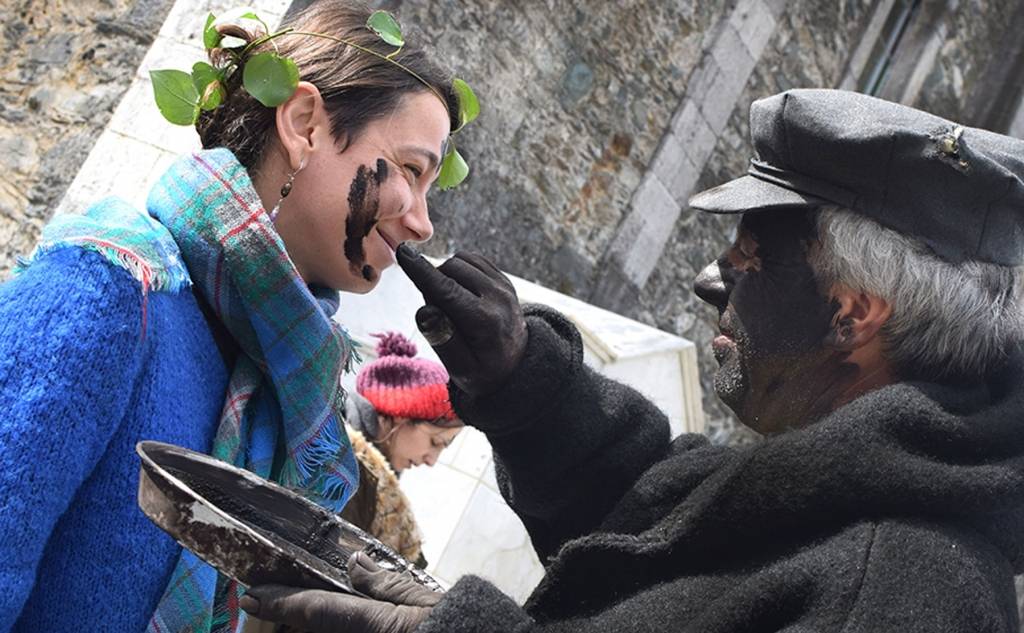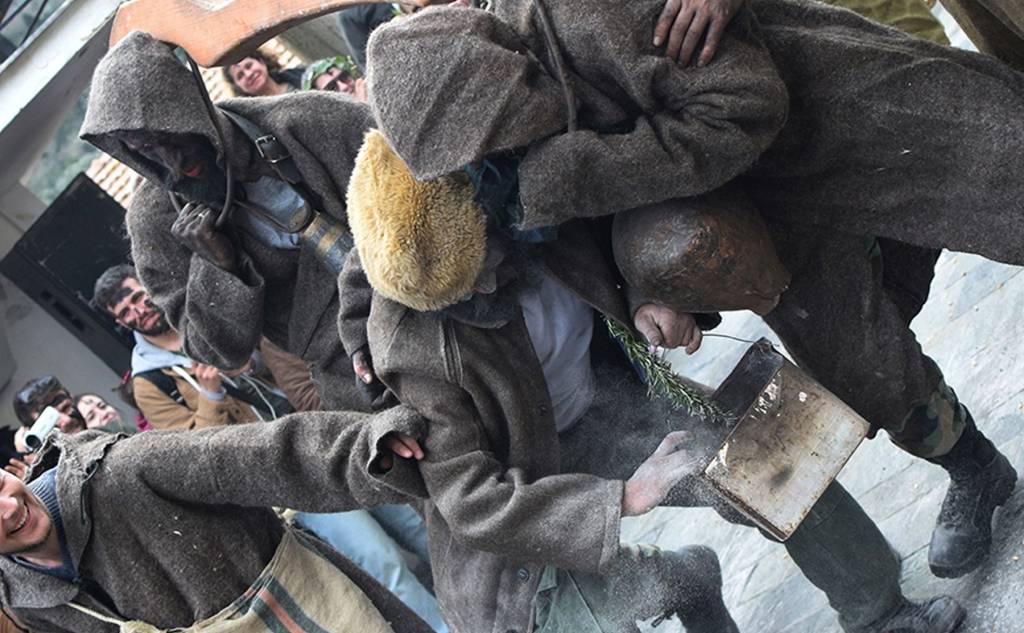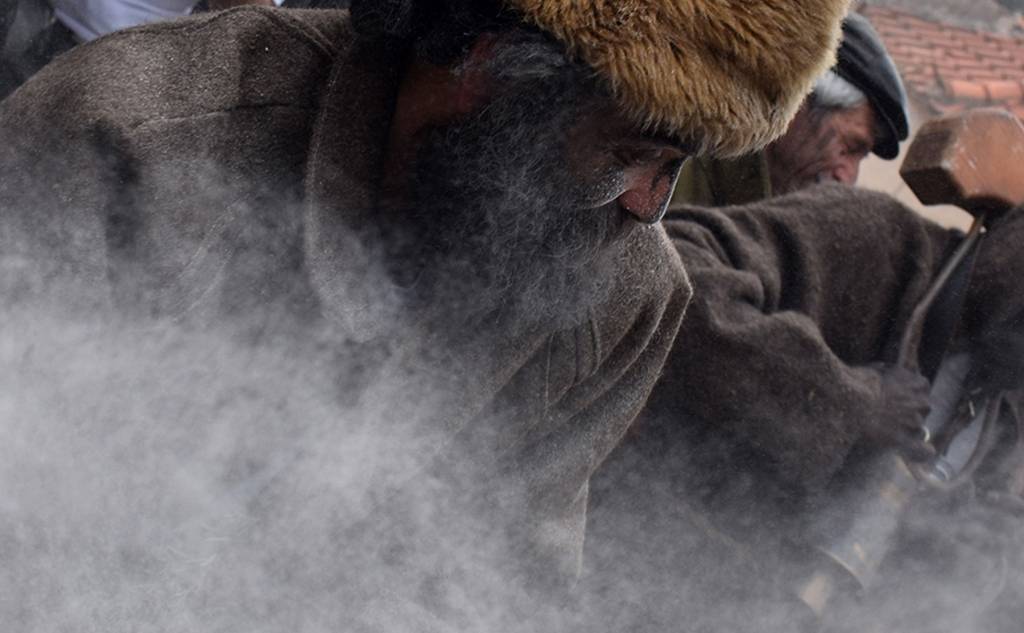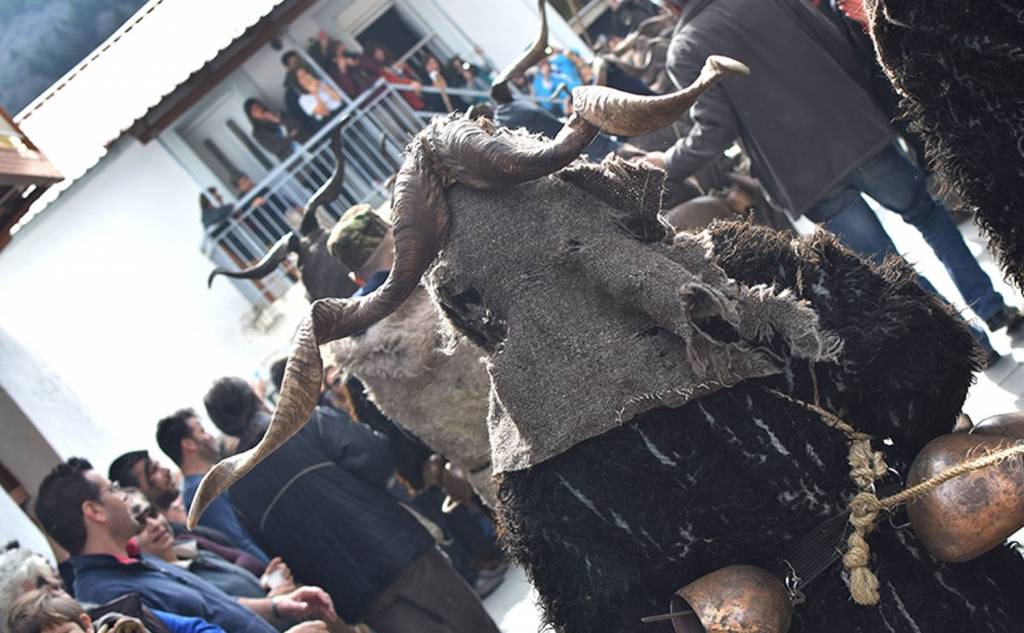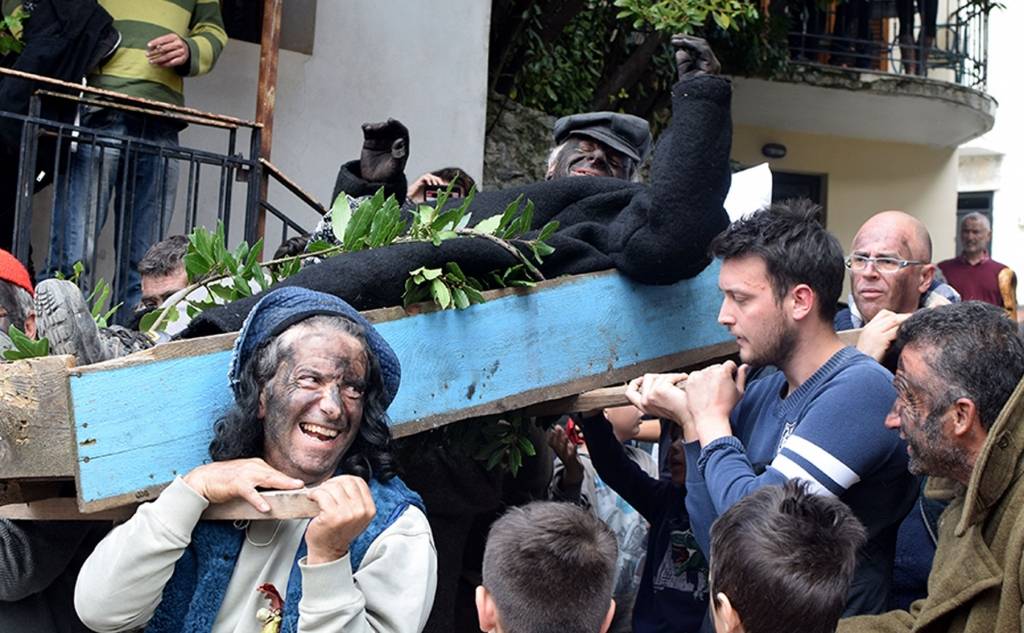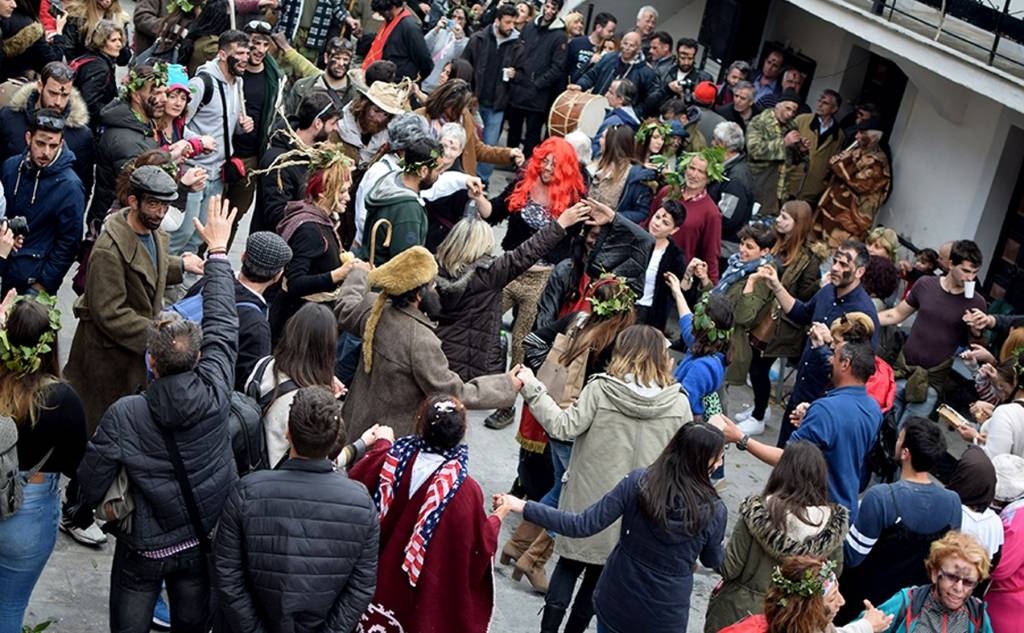The Εvent of Abundance in Nedousa
With deep roots in the ancient Dionysian worship, the “Event of Abundance” every Clean Monday in Nedousa, is the most authentic all day long event in Messinia.
The celebrations have as follows:
- Dance of the goats.
- Plowing
- Wedding
- Death and Resurrection
SMUDGING
First of all activities comes smudging! At the entrance of the village, a peasant, who has the role of the “Monk”, welcomes the visitors by painting them with black smoke from the wood stove. In Nedousa there are not viewers, only participants. The peasants early in the morning, having their faces painted, too, visit all of the village’s houses by wishing them all the best for the preparation of the celebration.
DANCE OF THE GOATS
Next, dressed in fleeces and horns, they walk along the village’s cobblestone streets by making deafening noise with their large bells. By this way they drive away the evil spirits, while at the same time, they call nature to wake up from winter’s lethargy.
PLOWING
It is the sacred moment of Nedousa’s events. Two peasants dressed up as oxen, drag a plow, making three rounds of the square upside down and vice versa clockwise. They are surrounded by people holding phallic symbols who, by provocative and inappropriate expressions, they are trying to challenge the flesh’s desires and thus to set them free. At the end, the two oxen,(symbolizing the male and female), fall in the ground and on top of them falls ash which symbolizes seeds ready for fertilization.
WEDDING
The groom and the “bride” are getting ready into different houses, each being accompanied by a crowd of people until they meet at the main square.
The couple, two men one of whom plays the bride, gets married before all people. What follows is the reproduction process, as an effort to cause fertility in the crops.
DEATH & RESURRECTION
At the final stage of the ceremony, the groom, who is played by the “Monk” who at the village’s entrance was painting the visitors, gets murdered and his body is brought to the square inside a coffin. The peasants mourn over his corpse by using various sexual references. By this way the groom is resigned and the arrival of spring is guaranteed leaving behind the defeated winter.
The events finish with drinking and dancing. First dances the former dead and we have the feast of life’s victory over death.





